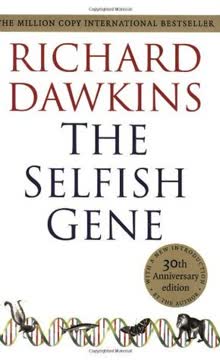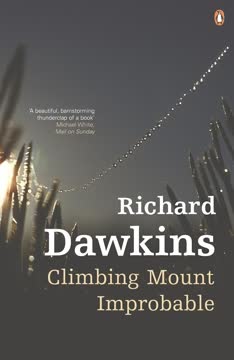Key Takeaways
1. Science Inspires Wonder and Imagination
"The feeling of awed wonder that science can give us is one of the highest experiences of which the human psyche is capable."
Scientific Poetry of Discovery. Science is not a cold, mechanical pursuit but a deeply poetic exploration of the universe. Unlike romantic myths that simplify reality, scientific understanding reveals complexity and beauty far more profound than traditional storytelling.
Wonder Beyond Mysticism. The scientific approach does not diminish mystery but exponentially expands it. By peeling back layers of understanding, we uncover ever more intricate and awe-inspiring aspects of reality. Science transforms wonder from a static concept into a dynamic, constantly evolving experience.
Accessible Inspiration. Scientific understanding is not limited to academics but can be communicated and appreciated by everyone. The key is presenting scientific discoveries with passion, clarity, and an appreciation for the inherent poetry of natural phenomena.
2. Unweaving the Rainbow Reveals Deeper Beauty
"Mysteries do not lose their poetry when solved. Quite the contrary; the solution often turns out more beautiful than the puzzle."
Breaking Poetic Misconceptions. Contrary to romantic poets like Keats, explaining natural phenomena does not destroy their magic. Understanding how a rainbow forms, for instance, reveals intricate optical and physical processes more stunning than mythical interpretations.
Complexity as Beauty. Scientific explanations expose the fundamental elegance of natural systems. The precise mechanisms behind phenomena like light refraction, genetic inheritance, and cosmic evolution are far more captivating than simplistic mystical narratives.
Intellectual Aesthetic. There is a profound aesthetic satisfaction in scientific understanding that rivals, and often surpasses, artistic or poetic representations. The mathematical precision, unexpected connections, and revelatory insights provide a different but equally powerful form of beauty.
3. The Universe is Far More Magnificent Than Poetic Myths
"Any sufficiently advanced technology is indistinguishable from magic."
Cosmic Scale and Complexity. The actual universe, as revealed by scientific investigation, is exponentially more incredible than human-crafted mythological explanations. Astronomical discoveries demonstrate scales of time and space that dwarf human-centric narratives.
Challenging Supernatural Claims. Paranormal and mystical explanations pale in comparison to scientific understanding. The universe's genuine mysteries—quantum mechanics, cosmic evolution, genetic complexity—are far more mind-expanding than supernatural stories.
Intellectual Humility. Scientific exploration requires acknowledging how little we truly know while celebrating the continuous process of discovery. Each answered question reveals multiple new mysteries, creating an endless cycle of wonder and investigation.
4. Genes Are Cooperative, Not Just Selfish
"Genes, for all that they are the separate units naturally selected in the Darwinian process, are highly cooperative."
Collaborative Genetic Interactions. Genes are not isolated, competitive entities but intricate networks that collaborate within species. They evolve complex cooperative strategies that enable survival and adaptation.
Genetic Climate and Interaction. Genes function within a dynamic "genetic climate" where survival depends on cooperative interactions. Different genes develop symbiotic relationships, creating complex biological systems that emerge from seemingly selfish individual components.
Beyond Individual Survival. The evolutionary process favors genes that can effectively collaborate, demonstrating that cooperation is often more advantageous than pure competition. This perspective reveals a more nuanced understanding of natural selection.
5. Our Brains Construct Virtual Reality Models
"You and I, we humans, we mammals, we animals, inhabit a virtual world, constructed from elements that are, at successively higher levels, useful for representing the real world."
Brain as Simulation Engine. Our brains continuously construct sophisticated virtual models of reality, actively interpreting sensory information rather than passively receiving it. This process involves complex computational techniques that predict and interpret environmental signals.
Adaptive Perception. Perception is an active, predictive process where the brain generates hypotheses about the world and constantly updates them. Illusions and perceptual tricks reveal the underlying mechanisms of this intricate modeling system.
Constrained Virtual Reality. While our brain creates virtual models, these models are not pure fantasy but carefully constrained by sensory input. This allows for efficient processing while maintaining accurate representations of our environment.
6. Coincidences Are Statistically More Common Than We Think
"The odds of this happening by chance alone are easily calculated."
Statistical Misunderstandings. Most seemingly miraculous coincidences are actually probabilistically expected when considering large populations and complex interactions. What appears supernatural often has rational, mathematical explanations.
Population of Potential Coincidences. The more opportunities for coincidental events, the more likely unusual alignments become. Our intuitive understanding of probability is often fundamentally flawed, leading us to overestimate the significance of chance events.
Psychological Bias. Humans are naturally predisposed to see patterns and assign meaning to random occurrences. Understanding statistical principles helps mitigate these cognitive biases and provides a more accurate worldview.
7. Bad Poetic Science Misleads More Than It Illuminates
"Bad poetry in science can lead the imagination along false trails."
Dangerous Metaphors. Poetic language in scientific discourse can be seductive but potentially misleading. Overly romantic or imprecise metaphors can obscure genuine understanding and create false narratives.
Critical Scientific Thinking. Proper scientific communication requires precision, clarity, and a commitment to empirical evidence. Romantic embellishments, while potentially engaging, must not compromise scientific integrity.
Distinguishing Good from Bad Poetry. Not all poetic language in science is harmful. The key is ensuring that metaphors and artistic descriptions genuinely illuminate complex concepts rather than obscuring them.
8. Evolution is a Collective Genetic Memory
"We are digital archives of the African Pliocene, even of Devonian seas; walking repositories of wisdom out of the old days."
Genetic Inheritance as Information. DNA represents a complex, multilayered record of ancestral experiences and environmental adaptations. Each species' genetic code contains a sophisticated description of the worlds in which its ancestors survived.
Evolutionary Complexity. Genetic inheritance is not a simple, linear process but a nuanced accumulation of adaptive strategies. Different genes carry memories of various environmental experiences, creating a rich, multidimensional biological history.
Beyond Individual Survival. Genes preserve collective wisdom that extends far beyond individual lifespans, representing a form of biological memory that adapts and evolves across generations.
9. Paranormal Claims Fail Scientific Scrutiny
"No testimony is sufficient to establish a miracle, unless the testimony be of such a kind, that its falsehood would be more miraculous than the fact which it endeavours to establish."
Skeptical Evaluation. Paranormal claims universally fail rigorous scientific investigation. What appears supernatural often has rational, mundane explanations when carefully examined.
Psychological Mechanisms. Human psychology is predisposed to seek patterns, believe in extraordinary claims, and create meaningful narratives from random events. Scientific thinking provides tools to counteract these cognitive biases.
Intellectual Courage. True scientific investigation requires the willingness to challenge comfortable beliefs and pursue empirical truth, even when it contradicts popular narratives.
10. Our Perception Actively Constructs Our Understanding of Reality
"Seeing is an active process in which the brain sets up hypotheses about what is going on out there, then tests those hypotheses against the data coming in from the sense organs."
Perception as Construction. Human perception is not a passive recording of reality but an active, predictive process where the brain generates and tests hypotheses about environmental information.
Sensory Efficiency. The brain employs sophisticated computational strategies to process sensory input efficiently, focusing on changes and unexpected elements while creating coherent models of reality.
Adaptive Modeling. Our perceptual systems have evolved to create functional representations of the world that prioritize survival and understanding over absolute accuracy.
Last updated:
FAQ
1. What is Unweaving the Rainbow by Richard Dawkins about?
- Science and wonder intertwined: The book argues that scientific understanding does not diminish wonder or poetry, but rather deepens our appreciation of the natural world.
- Critique of superstition: Dawkins challenges the idea that science kills mystery, showing instead how it exposes deeper layers of beauty and complexity.
- Science as inspiration: He explores how scientific discoveries, from rainbows to DNA, can inspire creativity, poetry, and awe.
- Advocacy for rational thinking: The book also warns against pseudoscience and superstition, advocating for scientific literacy and skepticism.
2. Why should I read Unweaving the Rainbow by Richard Dawkins?
- Reframes science and poetry: The book challenges the misconception that science destroys wonder, showing how it enriches both scientific and artistic perspectives.
- Promotes critical thinking: Dawkins encourages readers to develop a scientific mindset, valuable for understanding complex issues and debunking pseudoscience.
- Engaging and accessible: Written with clarity and passion, the book combines scientific explanation with literary references, making it stimulating for a broad audience.
- Bridges cultural divides: It offers insights into reconciling tensions between scientific and literary cultures, and between rationality and superstition.
3. What are the key themes and takeaways from Unweaving the Rainbow by Richard Dawkins?
- Science enhances wonder: Scientific explanations of natural phenomena, like rainbows or DNA, increase our sense of awe rather than diminish it.
- Poetry and science compatibility: Dawkins argues that both poetry and science share a spirit of wonder and creativity, and can inspire each other.
- Skepticism against superstition: The book warns against the allure of pseudoscience, astrology, and paranormal beliefs, which exploit our desire for mystery.
- Importance of scientific literacy: Understanding science and probability is crucial for society, especially in law and culture, to avoid errors and promote rationality.
4. How does Richard Dawkins in Unweaving the Rainbow address the criticism that science destroys the poetry of phenomena like the rainbow?
- Refuting Keats's claim: Dawkins challenges the poet Keats's idea that Newton "destroyed the poetry of the rainbow" by explaining its colors, arguing that science reveals deeper beauty.
- Science reveals new poetry: Newton's discoveries led to spectroscopy, unlocking secrets of the stars and universe, inspiring awe beyond the rainbow itself.
- Poetry of understanding: Dawkins, echoing Feynman, asserts that scientific study adds layers of meaning and enriches poetic sensibility.
- Science as inspiration for poets: He suggests that poets could find new sources of inspiration in scientific discoveries, creating even greater poetry.
5. How does Unweaving the Rainbow by Richard Dawkins explain the human appetite for wonder and its misuse?
- Innate desire for mystery: Humans have a natural appetite for wonder, which science can satisfy by revealing the universe's true beauty.
- Hijacking by superstition: Dawkins warns that this appetite is often exploited by astrology, paranormal claims, and pseudoscience, offering false mysteries.
- Childhood credulity: He explains that children are naturally credulous to absorb knowledge, but this must be replaced by adult skepticism to avoid gullibility.
- Need for scientific skepticism: The book advocates cultivating a scientific mindset to protect against deception and appreciate genuine wonder.
6. What is "bad poetic science" according to Richard Dawkins in Unweaving the Rainbow?
- Definition and danger: Bad poetic science is the misuse of poetic imagery and metaphor that misleads scientific understanding, even if the poetry is appealing.
- Examples of misuse: Dawkins cites homeopathy, astrology, New Age quantum mysticism, and overgeneralized evolutionary metaphors as cases where poetic allure obscures scientific truth.
- Ideological distortions: He critiques certain feminist and postmodernist writings that reject logic and scientific methods, warning against undermining science with ideology.
- Contrast with good poetic science: Good poetic science uses metaphor to stimulate imagination and insight, as seen in Faraday's "lines of force" or Kekulé's dream of the benzene ring.
7. How does Unweaving the Rainbow by Richard Dawkins explain human fascination with coincidences and pattern recognition?
- Misjudged probabilities: Dawkins shows that many coincidences are statistically more common than intuition suggests, due to large populations and many opportunities for overlap.
- Sampling and probability: He uses real-world examples, like telephone directories, to demonstrate that what seems astonishing is often expected when considering the numbers.
- Intuitive statistics and errors: Humans and animals often make false positive errors, seeing patterns where none exist, as shown in experiments with pigeons.
- Evolutionary calibration: Our brains evolved in small groups, so modern large populations and media exposure cause us to overreact to coincidences—a "miscalibrated gasp threshold."
8. What is the "selfish cooperator" concept in Unweaving the Rainbow by Richard Dawkins?
- Genes as selfish but cooperative: Genes are selected for their own replication, but they cooperate within gene pools to build complex organisms.
- Organism as gene vehicle: The individual organism is a temporary combination of genes; cooperation occurs at the species gene pool level.
- Co-evolution and adaptation: Genes co-evolve with those of other species, forming complex ecological networks, but this cooperation arises from selfish interests.
- Critique of naive cooperation: Dawkins warns against romanticizing universal cooperation in nature, emphasizing that apparent altruism often serves selfish genetic strategies.
9. What is the "genetic book of the dead" metaphor in Unweaving the Rainbow by Richard Dawkins?
- Genes as ancestral records: The metaphor describes the gene pool as a coded record of the environments and experiences in which ancestors survived.
- Genes encode adaptations: Genes collectively describe the worlds—deserts, forests, seas—in which ancestors lived, encoding adaptations to those environments.
- Variation in gene experiences: Some genes, like sex chromosomes or those in parasitic species, have specialized ancestral experiences reflecting different selective pressures.
- Species as averaging computers: Over generations, species "learn" from experience by shifting gene frequencies, building a genetic description that helps predict and survive future environments.
10. How does Unweaving the Rainbow by Richard Dawkins explain the brain's construction of reality and the concept of "virtual reality"?
- Virtual reality in the brain: The brain constructs internal models or simulations of the external world, using sensory input to build a coherent, predictive reality.
- Economy via redundancy removal: Sensory systems filter out redundant information, focusing on changes and unexpected stimuli to efficiently encode the environment.
- Illusions reveal processing: Visual illusions, like the hollow mask or Necker cube, show how the brain actively interprets ambiguous data, sometimes creating false perceptions.
- Dynamic updating: The brain continuously updates its models based on sensory feedback and movement, maintaining stable perception despite changes in viewpoint.
11. What is the significance of memes and cultural evolution in Unweaving the Rainbow by Richard Dawkins?
- Memes defined: Memes are units of cultural inheritance that replicate by imitation, analogous to genes replicating biologically.
- Darwinian selection of memes: Memes vary in their ability to spread; those better at infecting minds survive and propagate, leading to cultural evolution.
- Genes and memes co-evolve: Genes are selected for producing brains good at acquiring and transmitting memes, while memes evolve to exploit human cognition.
- Examples and effects: Catchy tunes, phrases, and ideas can spread like viruses, influencing behavior and culture, sometimes independent of their truth or utility.
12. What are the most memorable quotes from Unweaving the Rainbow by Richard Dawkins and what do they mean?
- "We are going to die, and that makes us the lucky ones." Dawkins uses this to highlight the improbability and wonder of our existence, inspiring awe at being alive.
- "To see a world in a grain of sand / And a heaven in a wild flower." Quoting Blake, Dawkins reinterprets this as a scientific appreciation of nature's complexity and beauty.
- "Science is, or ought to be, the inspiration for great poetry." Dawkins's thesis that scientific understanding enriches, rather than diminishes, poetic imagination.
- "Any sufficiently advanced technology is indistinguishable from magic." Citing Clarke's Third Law, Dawkins explains how new scientific discoveries can seem miraculous but are grounded in natural law.
- Praise from Melvyn Bragg: "The product of a beguiling and fascinating mind..." underscores Dawkins's ability to share his enthusiasm for science with all readers.
Review Summary
Unweaving the Rainbow receives mixed reviews. Many readers appreciate Dawkins' passion for science and his ability to convey complex ideas. They praise his arguments against superstition and his celebration of scientific wonder. However, some find his writing style pompous or rambling. Critics note his dismissive attitude towards religion and mythology. The book's strengths lie in its explanations of scientific concepts and its advocacy for scientific literacy. Overall, readers find it thought-provoking, even if they don't agree with all of Dawkins' views.
Similar Books



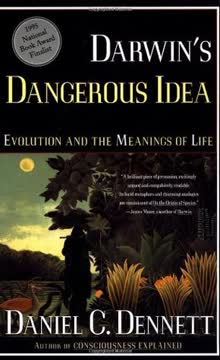
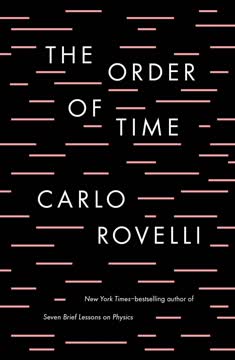



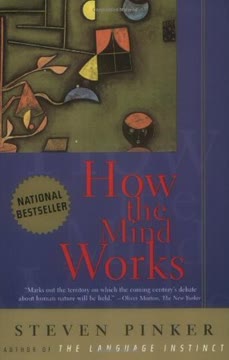
Download PDF
Download EPUB
.epub digital book format is ideal for reading ebooks on phones, tablets, and e-readers.


